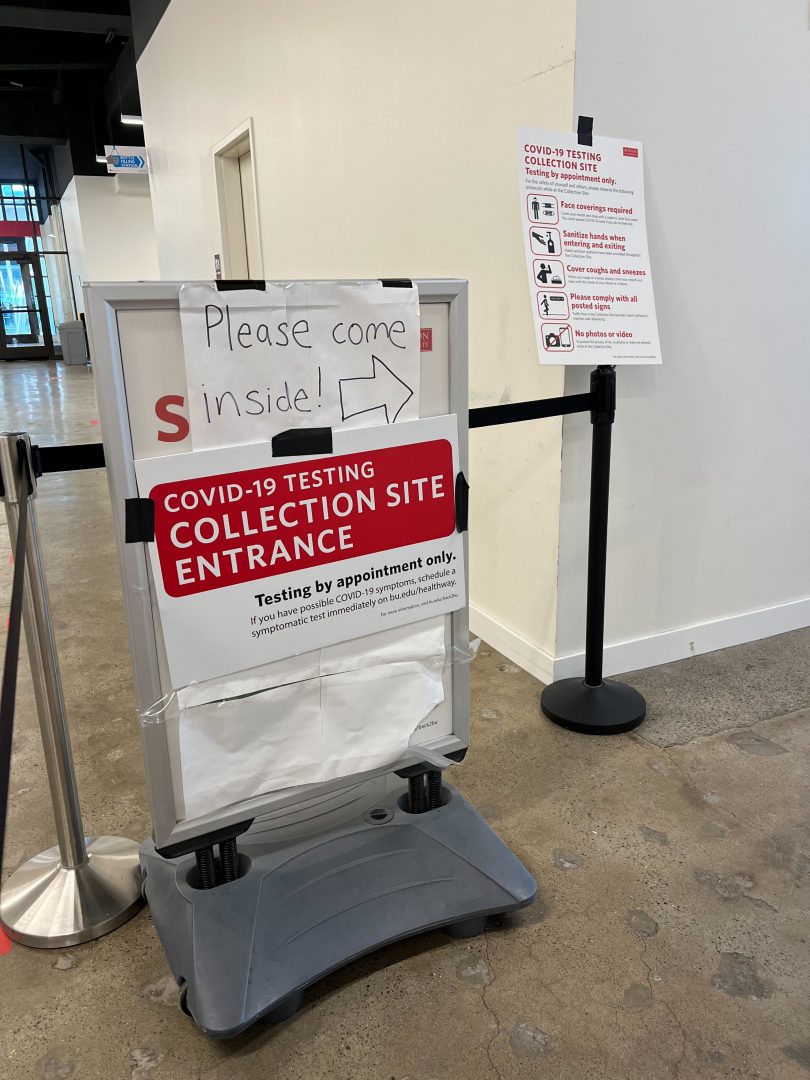By Michelle Tian
Boston University News Service

Boston University has made the switch to unobserved COVID-19 testing for students at the Charles River campus.
According to the university’s Healthway website, students have been able to pick up take-home testing kits at 808 Commonwealth Ave since Feb. 3, following their in-person appointments. Students were instructed to conduct their next test at home, unobserved, and drop the kit off at a check-in station during their next scheduled appointment at either 808 Commonwealth Ave or a new testing site located at 700 Beacon St.
Kevin Gonzales, director of the collection site operators, said the decision was based on testing results dating back to July 2021, when faculty and staff started unobserved testing.
The pilot data indicated testing “went off very successfully for that population,” according to Gonzales. Leading up to the official switch to unobserved testing on Feb. 10, students began the semester with one-to-two weeks of observed testing to ensure everything was under control after returning from the break.
According to Gonzales, many students felt the lines were too long or there weren’t enough slots in a day for appointments. With unobserved testing, most of these problems would ideally be fixed.
“This way, it allows the students to feel more comfortable to go to locations and be able to take the test at their convenience and drop it off in a faster and more streamlined environment,” Gonzales said.
BU spokesperson Colin Riley said the new method offers “a good customer service perspective” and would be more efficient.
“We actually think this may increase compliance and improve the testing experience for students in the sense of shorter wait times, more locations and quicker drop-offs,” Riley said.
For sophomore Hanna Dworkin, the drop-off experience has been less than ideal so far.
“Every time I go, the line is literally out the door,” Dworkin said. “And it’s because they have one or two people working the kiosks.”
Dworkin said that she doesn’t think this new way of testing is “the most reliable,” and that she already heard of cases where students are letting their peers test for them.
Even though this is an ongoing concern, Riley is confident to put his trust in BU students and in other groups that monitor and advise the administration.
“If someone isn’t testing properly, it’ll come back as an invalid test, and [they’ll] have to test again,” Riley said. “And we haven’t really seen those.”
Gonzales mentioned there have been cases where they’ve gotten kits back with the swab upside down or without the liquid in the vial. In response, he said that “we’re still in a learning curve,” and that this is normal for the first couple of weeks.
“The community learns from each other and we help guide them and instruct them,” Gonzales said. “It will even out over time.”
Riley is hopeful that things will start to get better in terms of relaxing and increasing guest access, a normality to student life.
“That’s why you’re here,” Riley said. “You’re here to have a full life and not just restricted access to classes and you want to be able to enjoy and have a full experience of college life.”




